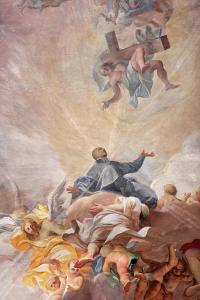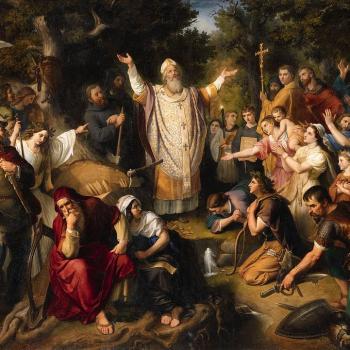What lessons did failure teach you that success never could?
Today, the Church celebrates one of the most influential figures in Catholic history: St. Ignatius of Loyola. Five hundred years ago, Ignatius was undergoing a personal transformation that would become a cornerstone for Catholic missions, spirituality, education, and service. His legacy has shaped countless lives—including my own.
When we consider the leadership lessons from Ignatius’s life, the examples are staggering. Yet one of his greatest gifts to us is the way his failures were woven into the fabric of his success. Ignatius didn’t become a saint in spite of his brokenness, but through it. And that truth offers profound hope to all who lead and struggle.
From Recklessness to Redemption
Ignatius began his life far from holiness. As a soldier enthralled by tales of chivalry and romantic valor, he chased glory on the battlefield—and it led to devastation. During a battle he insisted on fighting, against sound military strategy, a cannonball shattered his leg. The injury brought physical agony and spiritual desolation. Bones jutted from his side, his leg permanently shortened. His vanity—his longing to remain the gallant knight—led him to endure painful surgeries in the hopes of restoring his appearance.
But in that long season of convalescence, something remarkable occurred. At his sister-in-law’s home, with no romantic novels to read, he turned reluctantly to the lives of the saints. In that boredom and forced stillness, God began to rewire his heart. He didn’t lose his longing for heroic greatness—he simply redirected it. Ignatius began to imagine what it might look like to live with the sanctity of St. Francis or St. Dominic. The same passionate drive that once led him recklessly into danger now pointed him toward a reckless pursuit of holiness.
God said, “I’ll take that.” And he did.
Shaped by Limits
What inspires me most is how Ignatius allowed God to weave every piece of his brokenness into a path of transformation. As he moved from vanity to surrender, he let go of dreams shaped by worldly glory and took on new ones grounded in divine love. Rather than vigil for an unattainable lady, he kept vigil for Mary. Rather than seek nobility in battle, he committed to spiritual discipline and discernment in Manresa, where the Spiritual Exercises began to take form.
Ignatius dreamed of walking where Jesus walked and tried to join the Franciscans in Jerusalem—but they turned him away.
He returned to Spin and was silenced for four years. He wasn’t trained enough. He lacked credentials.
And yet, in that rejection, God redirected him. Through formal studies and newfound companions, Ignatius helped form what would become the Society of Jesus. The Franciscans’ “no” made room for a greater “yes.”
Leadership Rooted in Humility
Ignatius embodied boldness in everything he did. And when doors closed, he didn’t give up—he discerned again. His leadership wasn’t built on triumphs alone; it was shaped through trial, surrender, and reorientation. His desire for greatness became a desire for God’s greatness.
One of the most striking moments comes when the early Jesuits elected their first superior. Ignatius received all but one vote. The lone dissent? His own. And once the vote was finalized, Ignatius—now confirmed as the leader—chose to spend his first week on kitchen duty.
This wasn’t symbolic humility—it was real, gritty, and servant-hearted. Jesuit leadership didn’t begin at the head. It began at the margins. It began in vulnerability. It began in kitchen service.

Called to Be the Saint Only You Can Be
I often remind myself: I’m not meant to be a saint who already existed. I’m called to be the unique saint God has imagined for me. And so are you. God created you in this specific time and place, with your gifts, wounds, background, and longings. You’re meant to become who Jesus would be… if Jesus were you.
Nothing in us is wasted. Even the mess. Even the misguided dreams. God doesn’t delete our broken chapters—He redeems them. Discipleship means surrendering our story, letting Christ inhabit every line. And Ignatius shows us how God’s reckless love can take a reckless heart and shape it for eternal impact.
The Gift Hidden in the Wound
Your failures may not have sent you where you wanted to go, but they’ve almost certainly formed the kind of person who could carry the wisdom you now bear. The detours, embarrassments, and scars have a strange way of becoming lanterns—we walk into the future by the light of mistakes we never wanted to make.
Where success builds confidence, failure builds discernment. Where applause affirms identity, missteps demand self-awareness. Success might give momentum, but failure clarifies motivation.
Look at St. Ignatius. His shattered leg and reckless ambition didn’t merely redirect his path—they revealed who he was made to become. From courtly dreams to convalescent stillness, he discovered that holiness doesn’t require perfection. It requires surrender. And through each failed plan, he didn’t lose purpose—he refined it.
So ask yourself:
-
What if that mistake you’re still regretting was actually a turning point?
-
What if success hid your limitations, and failure gave you eyes to see?
Because the truth is, your missteps aren’t stains on your story. They’re brushstrokes in God’s masterpiece. And the world needs the kind of leader who’s been refined by both fire and grace.












